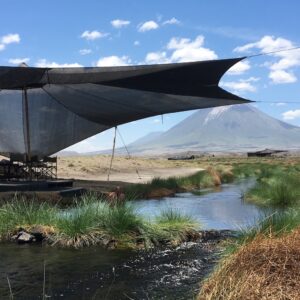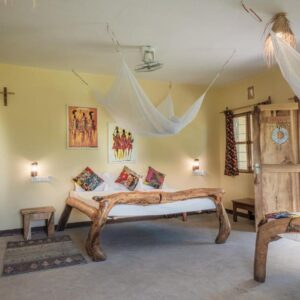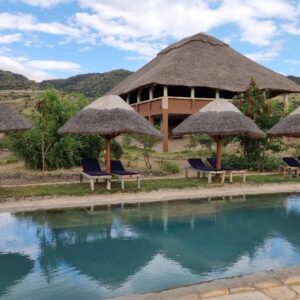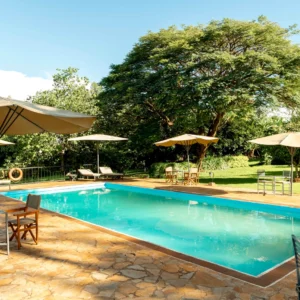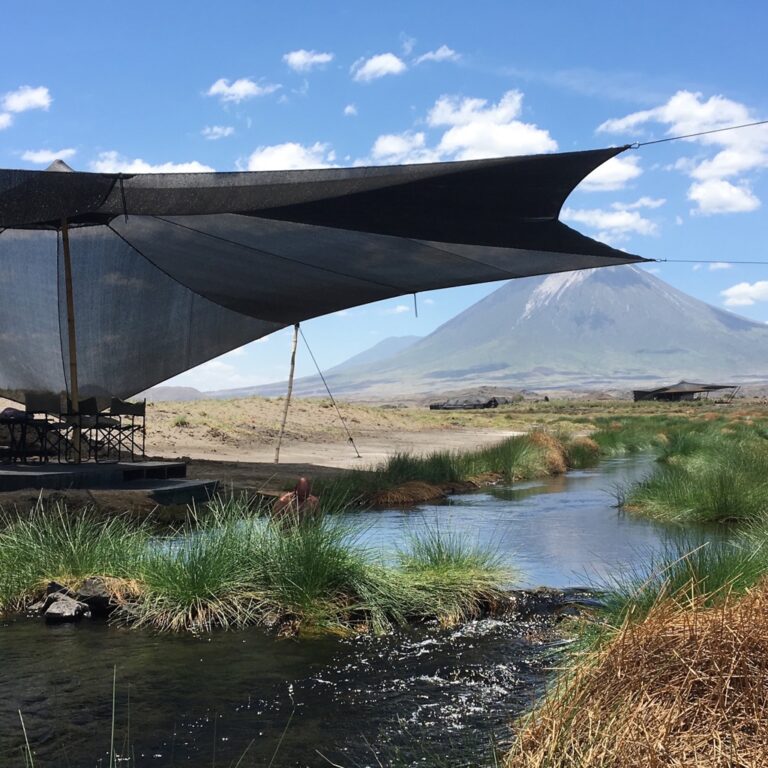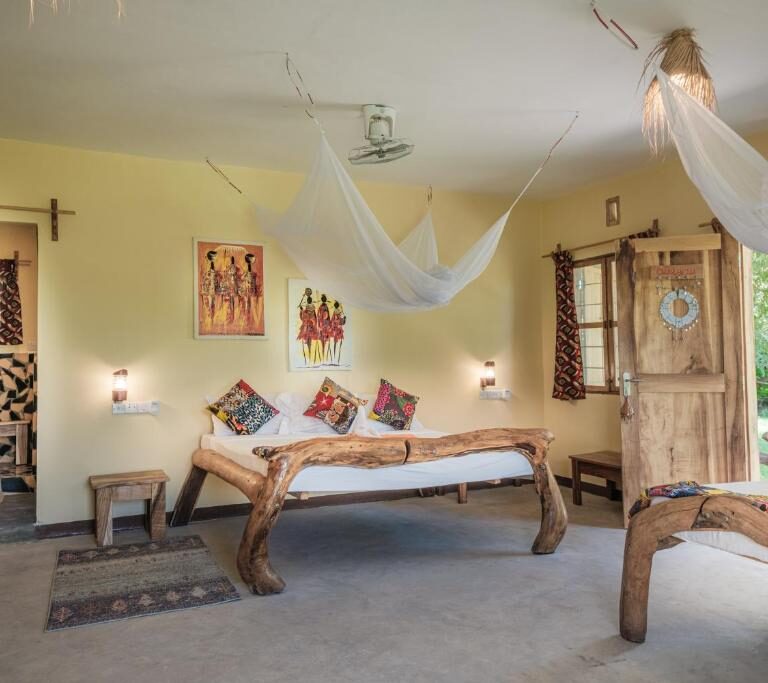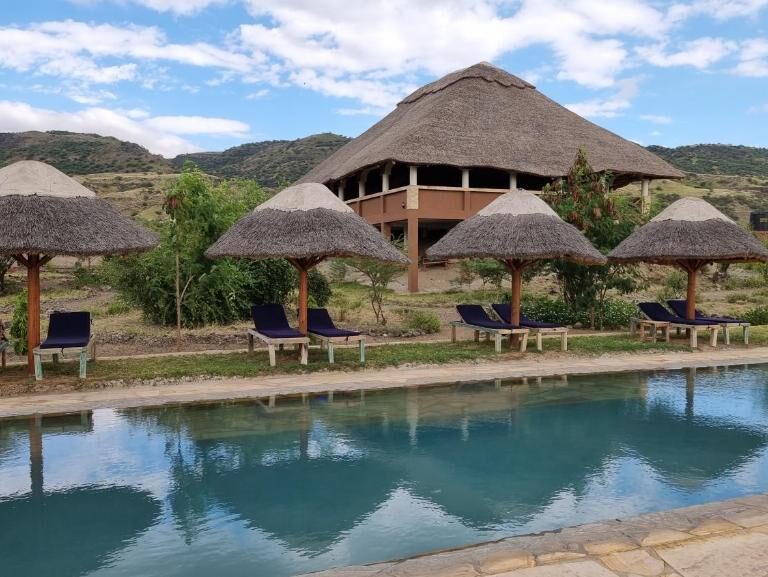Capturing the Magic of Tanzania: Choosing the Right Camera for Your Safari.
A Tanzania safari is an adventure etched in memories, not just photographs. But for many, capturing the raw beauty of the Serengeti, the majesty of a charging elephant, or the soulful gaze of a lioness is a top priority. So, the question arises: What camera should you bring to do justice to this once-in-a-lifetime experience?
The Gear Essentials:
- Let’s start with the basics. While fancy equipment can be tempting, focusing on the essentials will set you on the right track:
- DSLR or Mirrorless Camera: For flexibility and control, a DSLR or mirrorless camera is your best bet. They offer interchangeable lenses, manual settings, and superior image quality compared to point-and-shoots.
- Zoom Lens: The star of the show! A telephoto lens with a focal length of at least 200mm is crucial for capturing wildlife from a distance. Consider options like 70-300mm, 100-400mm, or even 150-600mm for maximum reach.
- Wide-Angle Lens: Don’t neglect the landscapes! A wide-angle lens (18-55mm or similar) will capture the vastness of the savanna, stunning sunrises, and iconic acacia trees.
- Extra Battery and Memory Card: Pack at least one spare battery and enough memory cards to last the entire trip. Running out of juice amidst that perfect lion sighting would be a heartbreak.
Buyers Guide: How to Choosing the Best Safari Camera
- Durability (Waterproof and Shockproof)
- Weight and Size
- Ease of Use: Features and Functionality
- Lens: Zoom or Wide Angle Lens
- Frames per Second (FPS)
- Connectivity: WiFi, Bluetooth, NFC
- Battery Life
- Sensor Size
- Cost
Beyond the Basics:
- Once you have the essentials covered, consider tailoring your camera choice to your specific needs and budget:
- Budget-Friendly: Entry-level DSLRs or mirrorless cameras with a versatile zoom lens like 18-200mm can still capture amazing photos.
- Enthusiast: If you’re passionate about photography, invest in a mid-range camera with a good telephoto lens like 70-300mm f/2.8 for low-light performance.
- Pro: Professional photographers might opt for high-end cameras with fast, prime lenses (fixed focal length) for superior sharpness and low-light capabilities.
Remember: how to keep your Camera for Tanzania Safari Safe
- Dust is your enemy: Tanzania can be dusty, so protect your camera with a lens cap and a camera bag cover.
- Learn the basics: Familiarity with your camera’s manual settings will give you more control over your shots.
- Don’t overpack: Stick to the essentials and avoid weighing yourself down with unnecessary gear.
- Focus on the experience: While capturing photos is important, don’t get so caught up in the camera that you miss the magic of the moment.
Tanzania awaits with its breathtaking beauty and unforgettable wildlife encounters. Choose the right camera, capture the essence of your adventure, and return home with memories that will last a lifetime.
Bonus Tip: Consider a teleconverter lens attachment to further extend the reach of your existing lens without breaking the bank.
I hope this helps you choose the perfect camera for your Tanzania safari! Remember, the most important factor is to be comfortable with your equipment and enjoy the incredible experience that awaits you.
I’m a beginner photographer. What’s the best camera for me?
You don’t need a pro-level setup for amazing safari photos! An entry-level DSLR or mirrorless camera with a versatile zoom lens like 18-200mm will do wonders. Focus on learning basic settings and enjoying the experience.
Must I have a super expensive telephoto lens?
While long zoom lenses provide amazing reach, a 70-300mm lens is a good mid-range option for capturing wildlife. Best Camera & Lens for Safari in Africa (All Budgets). If budget is tight, consider renting a high-end lens for your safari.
Can I get good photos with a point-and-shoot camera?
Yes, you can! While you might miss details on distant wildlife, you can still capture beautiful landscapes and closer encounters. Just don’t expect professional-level results.
What about image stabilization? Is it important?
Absolutely! Image stabilization helps combat camera shake, especially crucial at telephoto zoom lengths. Look for cameras or lenses with built-in stabilization for sharper photos.
How much memory card space should I bring?
Pack more than you think! High-resolution photos and video can eat up space quickly. Aim for at least 32GB cards and bring extras, especially if you plan on filming.
Any advice for protecting my camera in the dust?
Tanzania can be quite dusty. Invest in a good lens cap, camera bag cover, and consider a microfiber cloth for quick cleaning. Remember, dust is your enemy!
Anything else I should pack besides the camera?
- Extra batteries and a charger
- A sturdy tripod (optional, but helpful for landscape shots)
- Small flashlight for adjusting settings in the dark
- Waterproof camera bag if planning game drives in rain
- Bonus Tip: Research your safari itinerary and wildlife hotspots to know what animals you might encounter and adjust your lens choices accordingly.
What is Best Safari Camera for an African safari?
Another criteria for your best safari camera may be weight and the Nikon D5000, D90, D7000 and D600 as well as the Canon 50D are smaller and lighter bodies so if you will be doing bush walks or walking around camps taking photographs these may be more appropriate options to the heavier pro bodies.
What lens would be best to have on an African safari?
Here our recommendation is the Nikon 200-400 AFS f4 zoom lens or the 500mm AFS f4 VR lens. Both lenses are very sharp and can take teleconverters. Either the 1.4X or 1.7X tele-converter work well on the 500 f4 but we suggest using only the 1.4x TC on the 200-400.
Is iPhone camera good enough for safari?
The iPhone is not the right choice as your primary safari camera but, if you plan to take it to use as a phone in the urban areas anyway, it can double up as a very handy point and shoot backup camera for your safari.
Should I bring a GoPro on safari?
Consider bringing an action camera like a GoPro for capturing video and action shots. Action cameras are compact, rugged, and can capture stunning footage in challenging environments.
What type of camera is best for a Tanzania safari?
A digital single-lens reflex (DSLR) or mirrorless camera with a telephoto lens is ideal for capturing distant wildlife. The best camera and binoculars to bring on your African safari. High optical zoom and good low-light performance are crucial.
Remember, the most important thing is to capture the magic of your Tanzanian adventure, so choose a camera you’re comfortable with and enjoy the experience!

